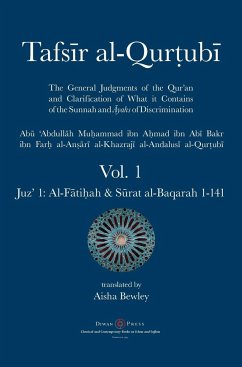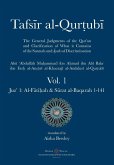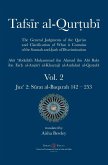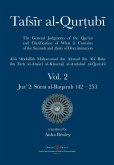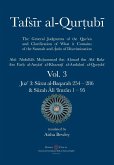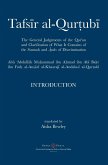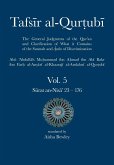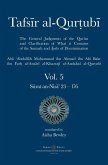The tafs¿r of al-Qur¿ub¿ is perhaps one of the most compendious of them all and is certainly among the most famous. As its title, al-J¿mi' li A¿k¿m al-Qur'¿n - The General Judgments of the Qur'an, suggests, its main focus is on the rulings and judgments to be found in the Qur'¿n. However, in the course of doing that, al-Qur¿ub¿ examines all the relevant sciences necessary, such as the ¿ad¿th pertaining to the ¿yahs, events in the s¿rah, what the Companions, their Followers and other noted people of knowledge said about the ¿yahs, essential aspects of Arabic etymology, syntax and usage, copiously illustrated by examples, and much more. In this volume, the author examines the F¿ti¿ah in great depth, and then works through the first juz' (two ¿izbs), stopping to examine linguistic matters, äk¿m/judgments in greater detail, covering, for example, ¿m¿n, establishment of the ¿al¿t, zak¿t, hypocrisy, the Tribe of Israel, the creation of Adam and ¿aww¿', caliphate, abrogation, and including the pivotal story of the sacrifice of the cow by the Tribe of Israel.
Hinweis: Dieser Artikel kann nur an eine deutsche Lieferadresse ausgeliefert werden.
Hinweis: Dieser Artikel kann nur an eine deutsche Lieferadresse ausgeliefert werden.

